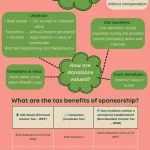Legal Framework for Electric Vehicle Charging Service Providers in Spain: CPOs, EMSPs and Interoperability Agreements
Royal Decree 184/2022 classifies charge point operators (CPOs) and e-mobility service providers (EMSPs) as regulated actors of the Spanish electricity system, with specific rights, duties, and responsibilities. Each service delivery model requires clear contractual structuring in terms of liability, billing, and interoperability.











